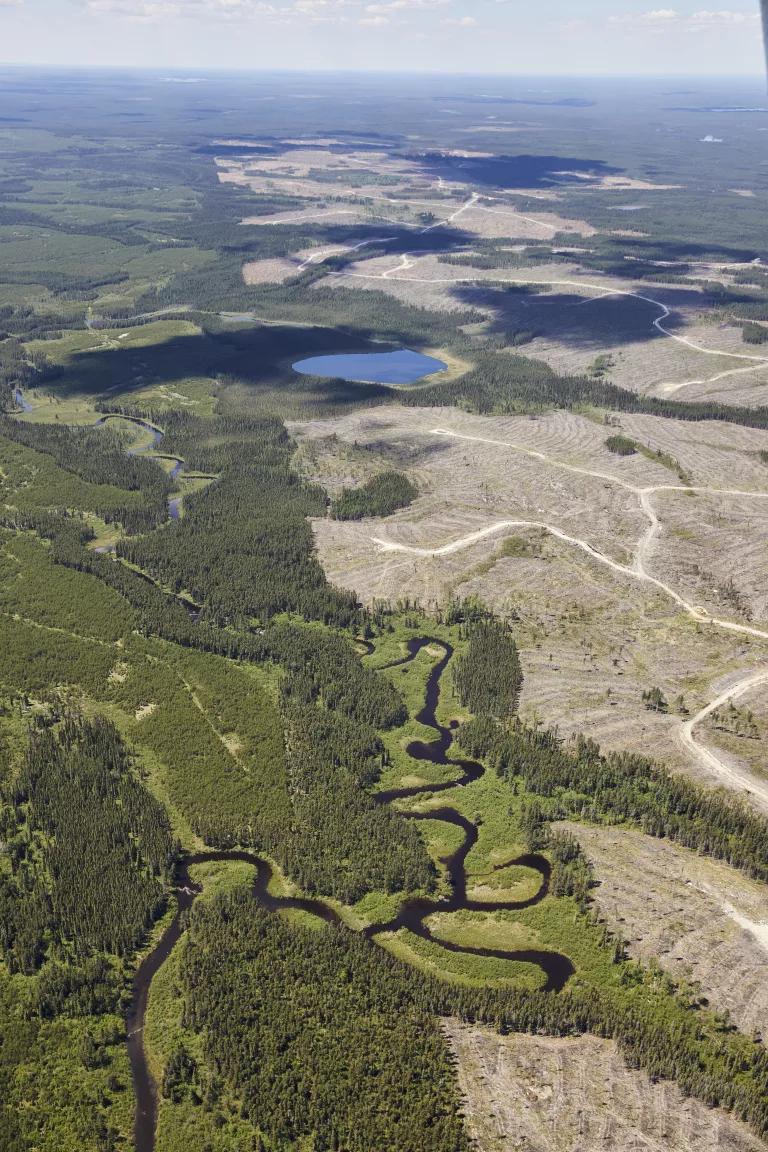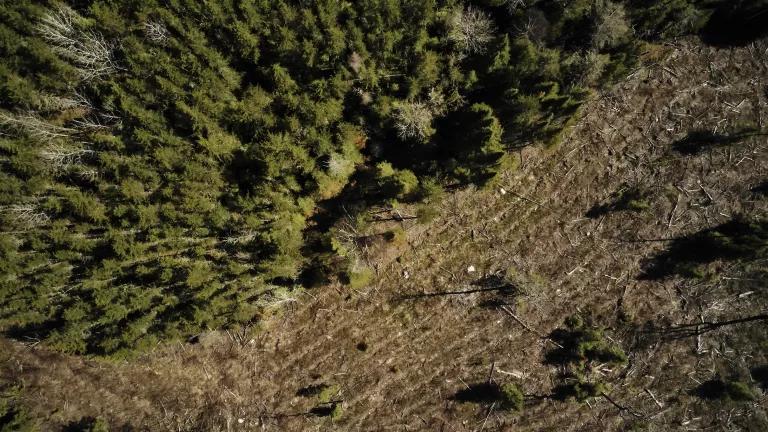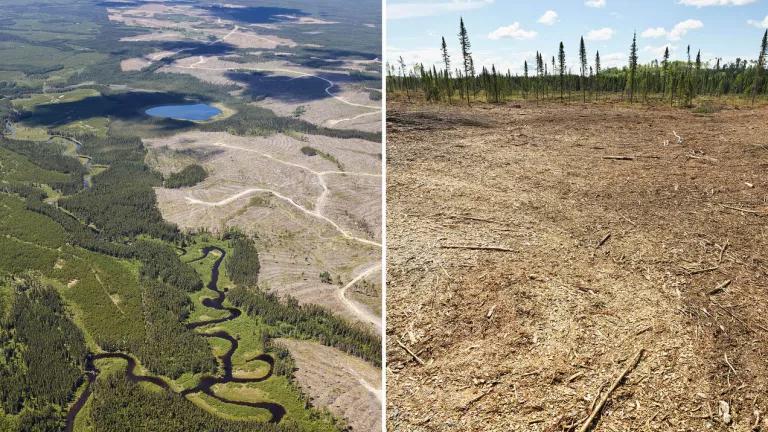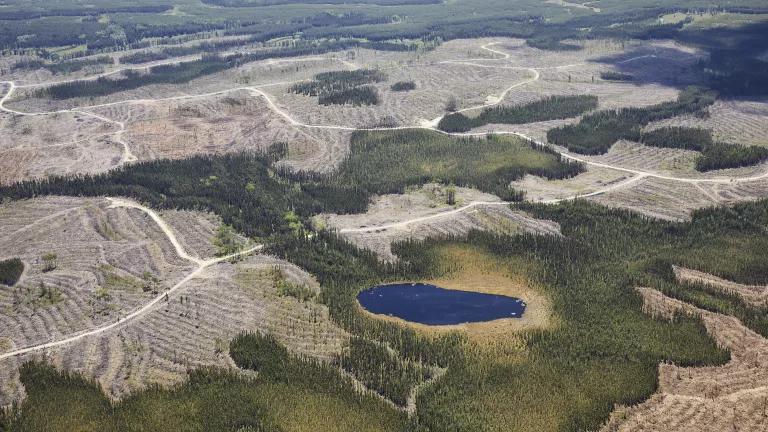Forest Destruction Creates Clear Risk for P&G Investors
NRDC and its partners released an investor brief outlining why Procter & Gamble’s (P&G) top investors should vote their shares in support of Shareholder Proposal #5, which urges the company to report on its efforts to eliminate deforestation and degradation of intact forests in its supply chains.

Today, NRDC and its partners released an investor brief outlining why Procter & Gamble’s (P&G) top investors should vote their shares in support of Shareholder Proposal #5, which urges the company to report on its efforts to eliminate deforestation and degradation of intact forests in its supply chains.
Intact forests regulate carbon emissions, promote biodiversity, and are essential to the cultures of Indigenous Peoples. Unfortunately, unsustainable logging is contributing to continued deforestation and intact forest degradation, with devastating consequences for human rights, the climate, and biodiversity loss.
In the brief, NRDC and its partners cite significant concerns around P&G’s wood pulp and palm oil supply chains that pose risks to shareholder investments, including the company’s ties to human rights abuses and the destruction of threatened species habitat. This brief comes following years of concerns that consumers, faith leaders, and global NGOs have brought to the attention of P&G’s leadership. Despite this, P&G has continuously failed to adopt and implement policies that adequately address these issues, earning the company a reputation as an international laggard in sustainability. As the investor brief highlights, P&G’s shareholders are exposed to significant risk due to the company’s inaction, including:
-
Market risk: P&G is ceding competitive advantage to its peers for its failure to meet its no-deforestation commitment and continued use of 100% virgin forest fiber in its tissue products. P&G’s competitor Kimberly-Clark has committed to halving its sourcing from natural forests by 2025. P&G was also rated below its peers by both Forest 500 and CDP Forest in terms of the strength of its commitments, reporting, and implementation in ensuring deforestation-free supply chains. As consumers increasingly opt to buy products made sustainably, it’s critical that P&G stop deforestation and forest degradation in its supply chains.
-
Regulatory and operational risk: P&G’s supply chains have been tied to human rights abuses and the destruction of at-risk species habitat, exposing the company to a series of regulatory risks that may pose losses to shareholders should these supply chains be interrupted as a result of regulatory action and enforcement. In fact, on September 30, U.S. Customs and Border Protection (CBP) banned the import of palm oil from FGV Holdings Berhad, a P&G joint venture partner and major palm oil supplier to P&G, based on evidence of forced labor and human trafficking on FGV-owned palm oil plantations across Malaysia. As a CBP official described, “U.S. consumer goods giant [P&G]...should take the ban ‘seriously’ if it is an importer of its palm oil products.” Other former purchasers of FGV palm oil, like Unilever, have suspended their contracts with the company based on these and other concerns, while P&G has maintained its partnership. Moreover, in Canada, P&G boreal pulp suppliers are sourcing from boreal caribou habitat that is disturbed beyond the Government of Canada’s proposed threshold, meaning that P&G’s boreal pulp supply may also be at risk of disruption should government choose or be required to protect boreal caribou habitat.
-
Reputational risk: As P&G continues its failure to address concerns, the company faces ongoing, increasing negative public attention for its forest supply chains. Over 135 organizations sent a public letter to P&G CEO David Taylor decrying the company’s role in driving clearcut logging in the climate-critical Canadian boreal forest. In addition, P&G has received unfavorable coverage for its ties to human rights abuses, deforestation and intact forest degradation in major media outlets, including CBS This Morning, Financial Times, and Reuters. Consumers are also taking action, with over 380,000 people signing petitions asking P&G CEO David Taylor to stop fueling deforestation and intact forest degradation in its supply chains, and more than 160,000 people signing petitions calling on the company to end modern day slavery in its palm oil supply chain and business partnerships. This negative public attention continues to tarnish P&G’s reputation as a responsible company.

Clearcutting in Canada's boreal forest releases vast carbon stores
P&G’s current policies and reporting have proven grossly insufficient to address the risks outlined above, yet the company attempts to carry on with business as usual. As the environmental and social impacts of forest destruction and rising consumer concerns become more pronounced, P&G faces continued business risks if it fails to remove deforestation and intact forest degradation from its supply chains. The time to act is now, and Shareholder Proposal #5 is an opportunity to mitigate the risks posed by P&G’s harmful palm oil and wood pulp supply chains.
If you own one or more shares of P&G stock, you can learn more about how to support this resolution and vote your shares here. Concerned citizens and consumers can also take action by telling P&G CEO David Taylor to move toward a more sustainable model and make products that are planet-safe.
Until P&G acts comprehensively to rectify its forest sourcing policies, concerned citizens and global NGOs will continue to spotlight the company’s role in jeopardizing human rights, the world’s last intact forests, and the global climate.




